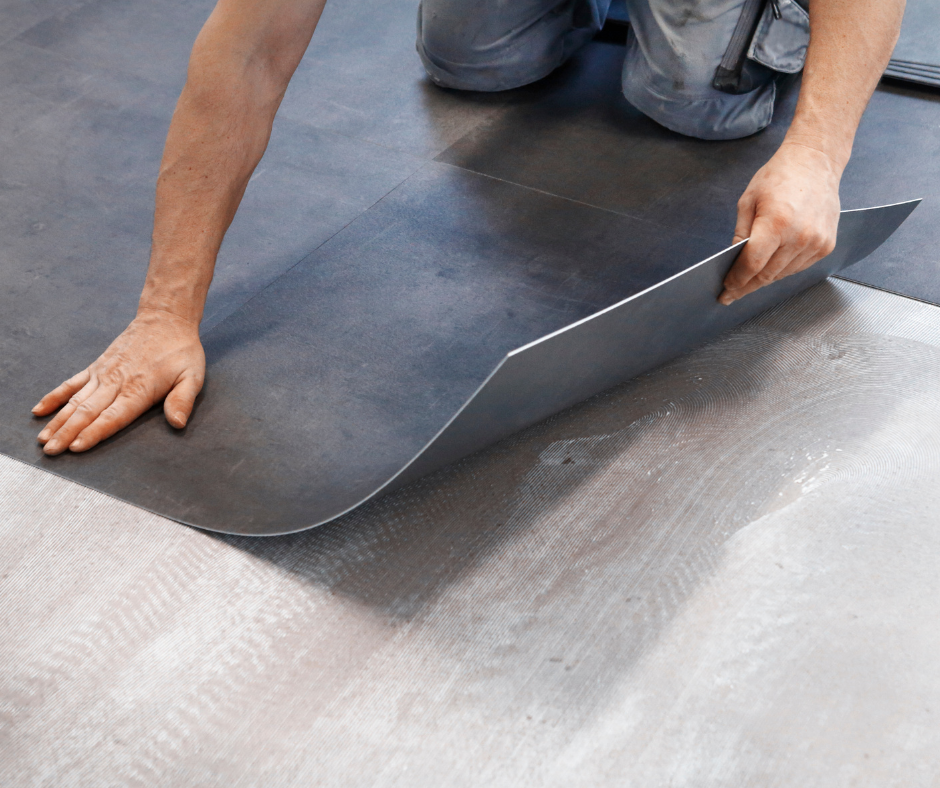
Vinyl vs. Hardwood Flooring: Ideal Flooring For Coastal Living
April 19, 2024
Whether you are an experienced DIYer or a homeowner just checking your options, the choice of flooring in your home can always be a daunting decision.
Many factors come into choosing one type of flooring, from color, durability, feel, installation, and the big one, cost. In this blog, we will be discussing the difference between vinyl flooring and hardwood flooring and what you need to know to make an informed decision.
Additionally, we will be looking at this through the lens of coastal living, and how these flooring will hold up in those sandy warm conditions.
And if you're shopping for flooring in the coastal area of Wilmington, NC, be sure to visit The Discount House. As specialists in affordable, high-quality flooring, they can help you find the perfect vinyl or hardwood option to meet your needs and budget. Stop by our showroom or check out our selection online to get started on your next flooring project.
Key Takeaways
Hardwood

Vinyl

Cost
Costs for flooring can vary widely depending on the material, location, and installation requirements. Generally speaking, vinyl flooring tends to be the more budget-friendly option compared to hardwood.
Hardwood flooring can range anywhere from $4 to $14 per square foot for the material alone. And for the highest-end hardwood options, the cost can even reach up to $25 per square foot, not including labor and installation. This makes hardwood a significant investment, especially for larger spaces.
In contrast, luxury vinyl tile (LVT) flooring is much more affordable. At Discount House in Wilmington, NC, their LVT flooring averages around $2–$10 per square foot. This is a fraction of the cost of solid hardwood.
Aesthetics
On the other hand, vinyl planks are designed to mimic the look of hardwood, including luxury species like mahogany or teak. With advances in printing and texturing technology, high-quality vinyl can be very convincing, making it hard to distinguish from real wood upon close inspection. This allows vinyl to offer a wood-like aesthetic at a more affordable price point and can easily pair with existing coutertops or cabinets.
Beyond just the visual appeal, there are also some tactile differences between hardwood and vinyl. Hardwood floors can have a louder, more creaky feel underfoot, especially as the wood ages. Vinyl flooring, in contrast, generally has a softer, more sound-absorbing feel. This can be an important consideration for homeowners who value a quiet, cushioned walking surface.
Maintenance
Vinyl flooring is renowned for being one of the easiest flooring types to maintain. It requires regular sweeping and mopping with the recommended cleaning products, but beyond that, the maintenance needs are relatively straightforward. Vinyl can even be safely vacuumed to remove dirt and debris which makes it great for homes with pets and or flood prone areas.
In contrast, hardwood floors demand a bit more attention and care. Sweeping or dry dusting should be done frequently to avoid scratches from small particles. It's crucial to use only hardwood-specific cleaning products, as excess moisture can cause damage to the wood over time. Additionally, hardwood floors typically need to be refinished about every 10 years to restore their luster and protect the wood from wear and tear.
The lower maintenance requirements of vinyl flooring can be a major advantage, especially for busy households or homeowners who prefer a "set it and forget it" approach to floor care. Hardwood, while offering a timeless and elegant aesthetic, does require a bit more hands-on maintenance to keep it looking its best over the long term. Homeowners will need to weigh the maintenance needs of each flooring type against their own lifestyle and cleaning preferences.
Durability
While hardwood floors are known for their timeless beauty, they require careful maintenance to preserve their condition over time. Hardwood is susceptible to damage from dust, dirt, high heels, and pet claws, which can lead to scratches, dents, and other wear. Additionally, hardwood is highly vulnerable to moisture damage, making it unsuitable for use in kitchens, bathrooms, or basements.
In contrast, vinyl flooring is designed to be much more durable and resilient. Vinyl can withstand significantly more wear and tear than hardwood without showing visible signs of damage. The synthetic materials used in vinyl are impervious to moisture, making it an ideal choice for areas prone to spills or high humidity.
However, it's important to note that vinyl does have a shorter overall lifespan compared to properly maintained hardwood. While vinyl can typically last 10-20 years, a well-cared-for hardwood floor can potentially last for decades.
The key advantage of hardwood is that it can be refinished and repaired if damage occurs. This allows homeowners to restore the floor's appearance and extend its usable life. Vinyl, on the other hand, is much more difficult to repair or replace sections of, as the material is not designed for easy patchwork or replacement.
Conclusion: Choosing the Right Flooring for Your Budget
When it comes to finding the best flooring option for your home on a budget, the choice between hardwood and vinyl largely comes down to your priorities and practical needs. Hardwood offers unmatched natural beauty and the ability to be refinished over time, but requires more specialized care and maintenance. Vinyl flooring, on the other hand, provides an incredibly durable and affordable alternative that can mimic the look of wood with impressive realism.
Ultimately, evaluating factors like upfront cost, installation, long-term durability, and maintenance requirements will help you determine the best fit for your home and lifestyle. And if you're shopping for flooring in the Wilmington, NC area, be sure to visit The Discount House. As specialists in affordable, high-quality flooring, they can help you find the perfect vinyl or hardwood option to meet your needs and budget. Stop by their showroom or check out their selection online to get started on your next flooring project.

